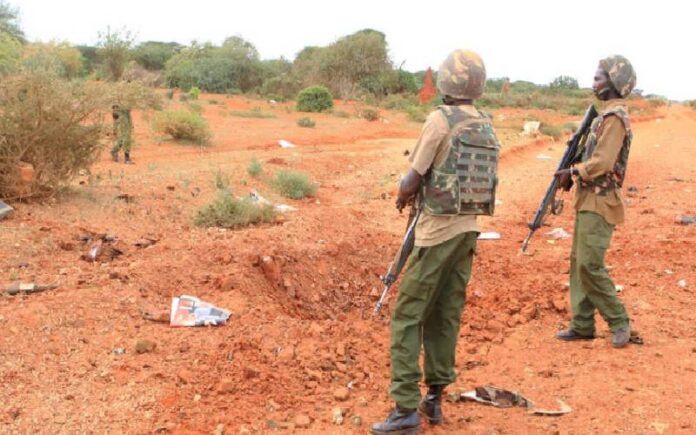At least two people were killed near Kenya’s eastern border with Somalia when the vehicle they were travelling in ran over an explosive device suspected to have been planted by the extremist al-Shabab rebels, officials said Tuesday.
It is the second attack in two months targeting vehicles delivering supplies to a construction site where Kenya is building a fence and trenches along the Somali border to prevent extremists, bandits and illegal immigrants from entering the East African country.
The incident happened Monday in the eastern part of Lamu county, Lamu County Commissioner Irungu Macharia said.
Three people were in the water bowser – the driver, his assistant and a passenger – all employees of a private contractor building a wall at the Kenya-Somalia border wall construction site. The passenger survived with slight injuries, he said.
“We strongly believe the improvised explosive device was planted by al-Shabab militants but our teams are pursuing them,” he said.
Last month militants attacked another truck ferrying water to the remote site killing one person.
Somalia has not had an effective central government since the 1991 overthrow of dictator Siad Barre by warlords who then turned on each other. Since 2006 al-Shabab Islamic extremists have been trying to overthrow Somalia’s weak government, which is backed by the United Nations, the African Union, and several Western countries.
Al-Shabab has vowed revenge on Kenya for sending its troops to support the Somali government. Kenya has had soldiers in Somalia since 2011, when it deployed its military to fight the militants after several westerners were kidnapped on Kenyan soil, threatening the country’s tourism industry, a key pillar of the economy.
Kenya’s government had originally proposed to build a wall about 700 kilometers (435 miles) long along the border but currently it is mostly just a wire fence and ditches.
When the plan was first announced in 2014, the government said it would build a wall made up of a series of concrete barriers, fences, ditches, and observation posts monitored by security cameras. It was meant to stretch from the Indian Ocean all the way to the border region of Mandera country, where Kenya and Somalia meet Ethiopia.
Construction was suspended in 2019 after parliament questioned why the government had used $35 million to construct a fence that was only 10 kilometers (6 miles) long.
The government has not given any updates on the progress of the wall since 2019.






